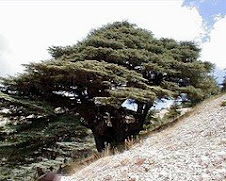Sugar Cane Expansion and Roots Medicine Make Uganda's Forests Go Down
By Alexis Okeowo/Mabira Forest Reserve
article from: Time.com
Scientists are combing rain forests around the world for potential cures for cancer and other ailments, but the residents near Uganda's last rain forests are are not waiting around for a multinational drug company to discover their treasures first. They have always believed that there are cures in the plant life of the Mabira Forest Reserve, the green, leafy jungle that sprawls through the middle of the country. And so, locals seeking treatments for sexual impotence, cancer, malaria and other illnesses are simply taking plants from the forest, parts of which are already in danger of being razed to make room for the construction of a sugarcane plant.
For example, there is what the locals call the "sex tree," which grows deep in Mabira's dense, tropical bush. It is a skinny, scruffy, slow-developing plant with springy green leaves that is decidedly unremarkable. It has a lonely existence. Other members of its plant family have been uprooted by local aphrodisiac-seekers long ago.
"We need to think about conservation in a scientific way," says Dr Mauda Kamatenesi, a lecturer of botany at Uganda's Makarere University and a lead researcher on Mabira's medicinal plants. Kamatenesi is leading a drive to conserve plants such as Citropsis articulata, or the "sex tree." Also in danger of extinction in Mabira is Pronus africana, which is commonly used to treat malaria and some forms of cancer.
Kamatenesi believes that plants like the "sex tree" may have other medicinal properties besides treating sexual impotence and says that Uganda will miss out on drug discovery and manufacturing if the government does not protect the forest. Researchers also say that the plants' extinction would take a toll on local Ugandans who have been using the trees as herbal cures for generations. Says Kamatenesi: "We are losing out if we let these plants go extinct without doing more research. The people say that the medicines work."
Crunching leaves on the damp, muddy ground as he walks in the forest, Ibrahim Senfuma, a bird guide, says that he and his friends take Citropsis articulata to boost their sex drives. Locals either chew the roots and leaves of the plant (salt is added for flavor), or mix them in a half liter of water and then boil to make tea. Lowering his voice amid the crowing and squawking sounds of the forest, Senfuma confides: "I don't know if it is psychological, but it works. You feel stronger than before."
Nearby, sunlight streams from an opening in a thatch of trees onto Faziira Nakalama, a cook, as she proudly lists the ailments (her own and her neighbors') cured by the leaves and roots of the Pronus africana. "Decreased immunity, stomach pains, malaria... the forest is very important," Nakalama says.
A great deal of the forest may not be around much longer. Over a fourth of the rain forest is in danger of being cleared in order to make way for a sugarcane estate, if a plan by Uganda's President Yoweri Museveni is approved. Last year, Museveni ordered a study into the feasibility of clearing 7,000 hectares (17,000 acres) of the forest after a sugarcane company applied for permission to expand its farm. The study concluded that the sugarcane plan endangers rare trees and birds in the 30,000-hectare forest. At risk are 218 species of butterflies, 312 plant species and 315 bird species, including nine found nowhere else in the world.
Full article continues at: Ugandan Forest Endangered by Sugar Cane, Its Own Medicines
View also:
Guide to Alternative Energy Websites and Blogs
Solar Intelligence: Clean Energy as a Path to World Peace
src="http://pagead2.googlesyndication.com/pagead/show_ads.js">
Of Monks and Oligarchs
-
One of the things I have learned in my more than seven decades of life is
that everything has its opposite. For instance, you wouldn’t know up if
there w...
12 hours ago



No comments:
Post a Comment